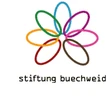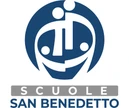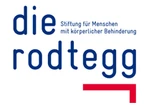Founded by M. Crist Fleming in 1956, TASIS The American School in Switzerland is a day and boarding school committed to creating global citizens through education, travel, and service. The oldest American boarding school in Europe, TASIS celebrated its 60th anniversary during the summer of 2016. TASIS welcomes students from Pre-Kindergarten (starting at age three) through grade 12 and also has a Postgraduate program. 750+ students make up the Elementary, Middle, and High Schools, with approximately 260 students between ages 11–19 living in dormitories on campus . TASIS is distinguished by both its diversity and its unity. The student body represents more than 60 nationalities and speaks more than 30 different mother tongues. Cultural differences are celebrated as students challenge and inspire one another to become global citizens. Students leave TASIS with links to a vibrant worldwide community that celebrates the unique nature of this remarkable place. High School students can choose from individual Advanced Placement courses or pursue the International Baccalaureate (IB) Diploma , helping them receive offers from more than 500 universities in more than 20 nations over the past 10 years. The School offers an extensive Fine Arts program that includes courses in Drama, Music, and the Visual Arts, enabling aspiring artists of any ilk to find their creative voice and nurture their talent. The Elementary School supplements the Core Knowledge curriculum with the Singapore Math program, a robust English as an Additional Language program, and an Italian section—preparing all students for academic success at the next level. Accredited by the European Council of International Schools (ECIS) and the New England Association of Schools and Colleges (NEASC), TASIS is proud to employ gifted, passionate educators who encourage intellectual curiosity. More than 75 percent of the faculty hold advanced degrees. The campus includes more than 25 buildings dating from the 17th century Villa De Nobili to the state-of-the-art Campo Science Center, which opened in 2014. Perched on a hillside in sunny southern Switzerland with commanding views of snow-capped mountains, palm trees, and Lake Lugano, the School's enviable location makes possible an impressive Academic Travel program . Travel experiences throughout the year bring students face-to-face with the rich cultural heritage of Europe and the spectacular natural beauty of the Alps and beyond. The School’s pioneering Global Service Program transforms lives by providing every High School student with a unique opportunity to connect across borders—whether geographic, economic, or social—through comprehensive experiences that build empathy and encourage personal responsibility. The Program awakens students to humanitarian needs; inspires them to build enduring, mutually beneficial relationships; and leads them toward a life of active service and committed service. TASIS encourages physical fitness and healthy lifestyles. Varsity sports teams compete throughout Switzerland and Europe, and a variety of other fitness activities are offered to cater to all interests. Each year also brings many opportunities to ski and explore the breathtaking Alps. Each summer, hundreds of students aged 4–18 journey to Lugano for the TASIS Summer Programs , which feature intensive academic courses, an unparalleled performing arts program, thrilling outdoor adventures, advanced sports training, and exciting cultural excursions around Europe.



















